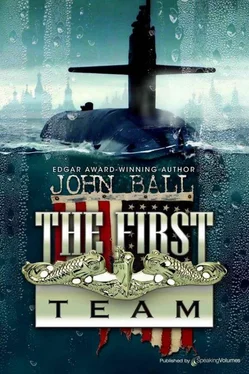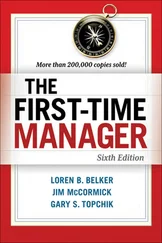Джон Болл - The First Team
Здесь есть возможность читать онлайн «Джон Болл - The First Team» весь текст электронной книги совершенно бесплатно (целиком полную версию без сокращений). В некоторых случаях можно слушать аудио, скачать через торрент в формате fb2 и присутствует краткое содержание. Год выпуска: 2013, Жанр: Триллер, на английском языке. Описание произведения, (предисловие) а так же отзывы посетителей доступны на портале библиотеки ЛибКат.
- Название:The First Team
- Автор:
- Жанр:
- Год:2013
- ISBN:нет данных
- Рейтинг книги:5 / 5. Голосов: 1
-
Избранное:Добавить в избранное
- Отзывы:
-
Ваша оценка:
- 100
- 1
- 2
- 3
- 4
- 5
The First Team: краткое содержание, описание и аннотация
Предлагаем к чтению аннотацию, описание, краткое содержание или предисловие (зависит от того, что написал сам автор книги «The First Team»). Если вы не нашли необходимую информацию о книге — напишите в комментариях, мы постараемся отыскать её.
Student protesters are being slaughtered in the Midwest.
The Jewish pogroms have begun.
You are now living in Soviet — occupied America!
One nuclear submarine and a handful of determined patriots against the combined might of Russia and Soviet-occupied America… The Most Explosive and Gripping “What If” Novel of Our Time!
First published January 1971
The First Team — читать онлайн бесплатно полную книгу (весь текст) целиком
Ниже представлен текст книги, разбитый по страницам. Система сохранения места последней прочитанной страницы, позволяет с удобством читать онлайн бесплатно книгу «The First Team», без необходимости каждый раз заново искать на чём Вы остановились. Поставьте закладку, и сможете в любой момент перейти на страницу, на которой закончили чтение.
Интервал:
Закладка:
Haymarket agreed. “That kind is the backbone of the Navy. Real pros, every one of them.”
“Let’s have some coffee,” Higbee suggested. It was a good idea because they would all be there for some time. A very long night lay ahead.
Far out in northern Pacific waters the fishing vessel Dolly plowed ahead slowly on her course. Already her hold had begun to fill with her catch, but by all visible signs her luck had up to that point not been too good, which was consistent with the relative inexperience of her crew and of the new captain who had taken her over.
In the small communication room the executive officer of the U.S.S. Dolly listened intently to a news broadcast from the States. It was as sterile and controlled as all such broadcasts had been for the past several weeks, but Lieutenant James Morton was not unduly concerned about that. When the sports part of the newscast came he leaned forward pressing his palms against the tabletop that held the equipment. Almost three thousand miles away the announcer supplied the principal game scores and then turned to the results of local interest. On the last item he fluffed, then he corrected himself and reversed the figures he had just given.
Lieutenant Morton could not help letting out a short yelp of joy; then he contained himself and hurried toward the impromptu wardroom. When he arrived there his face told the story before he could speak. “Sir,” he said addressing the captain, “Low Blow is under way. The isotope has been successfully dropped.”
The skipper looked at him. “Morton, you look ill. Do you feel all right?”
Morton straightened up. “Sir, I feel just fine.”
Lieutenant Hanson, the Japanese language officer, corrected him. “No you don’t, you look terrible. Come to think of it, I don’t feel very well myself.”
“The whole crew looks sick to me,” the captain continued. “I wish that we had a medical officer on board. But since we don’t, I am going to prescribe medicinal spirits all around.”
“I didn’t want to mention it, sir,” Morton redeemed himself, “but I have been feeling faint lately.”
“In that case we are within Navy regulations; we can’t afford any general illness now.”
“Absolutely not, sir,” Hanson agreed. “I’ll break out the prescription immediately.*
All hell broke loose within the shipyard in a matter of minutes. By the hundreds the workmen dropped their tools and fled toward the gates. The enemy who were present knew that this exodus could not be stopped and were not at all sure that it should be. Of all of the people in the yard, the commander seemed for the moment to be the only one who knew immediately and correctly what to do; as soon as the report was confirmed, which was within a matter of seconds, he seized the direct-line phone to Mare Island and demanded the commander there on emergency priority. The startled operator responded and cut into a conversation that was in progress.
“Ed,” he barked as soon as the line was clear, “Bent Spear! We’ve got a radiation leak from the Magsaysay.”
The Mare Island commander reacted at once. “How bad?”
“Don’t know yet, but the Geigers are going mad; we’re evacuating.”
“I’ll get the nukes to you as fast as humanly possible. Hang on.”
He hung up long enough to issue urgent orders; two minutes later he was back on the line. “Any change?”
“No new reports. I’ll give you anything I get as fast as it comes in.”
“Right. I’m after helicopters. A land party will depart ASAP. Ten minutes at the outside. Motorcycle escort. Clear for choppers if I can get any. Set up the gate clearances.”
“Wilco. How many are coming?”
“Eighty to one hundred.”
“Right.” The Hunters Point commander hung up. He had barely done so when his enemy overseer demanded his attention.
“What is nukes?” the man asked.
“Nuclear specialists; no one else can handle this stuff.”
“They must be examined and searched; it will take hours.”
The commander lost his temper. “God damn you, man, this place can be blown sky-high together with half of San Francisco in the next ten minutes! That includes you and me. Don’t you know what a nuclear pile can do!?”
“Yes, but…”
“Take your ‘buts’ and shove them right up your ass. If those nukes don’t get this under control, they’ll find your balls hanging on a cherry tree somewhere in the state of Oregon. Now get the hell out of my way!”
To talk like that to an occupying officer meant immediate execution, that had been made clear. Because the commander had forgotten that vital fact in his excitement and worry, the overseer read his concern as genuine; he also had no desire to meet a sudden nuclear death himself. “They can do nothing,” he declared.
The commander answered, “Maybe that’s right, if it is we’re dead men right now. But if anyone can handle it they can and you can thank God that they’re willing to try.”
“They have their orders.”
“Monkey face, there’s something you don’t know. In this country we don’t order men to kill themselves. Those men are all volunteers and you’d better believe it. They’re the best technicians on nuclear material in the world and they don’t know what fear is.”
He had no more time for the overseer; he picked up two more nel who hoped that the radiation level was not yet high enough to endanger them.
Two hundred feet short of the end of the pier the buses pulled up and the men inside them began to pour out. In the first beginnings of twilight they looked like invaders from some hostile planet; the heavy decontamination suits that they wore transformed them into anonymous, unrecognizable creatures who were superficially human, but who clearly lived on another plane.
Awaiting them was an enemy officer who stepped forward and demanded, “Who is leader?”
Before he got an answer the first of the suited nuclear specialists, a piece of electronic gear in his hand, strode across the brow and swung himself down the hatch into the submarine’s pressure hull.
The commander appeared on the scene, shadowed by his overseer. “What’s the problem?” he asked of the enemy officer.
The man turned to him. “I am Kepinsky, nuclear expert. I check everything.”
“Get a suit, then,” the commander answered.
“I inspect all equipment.”
“Go right ahead.”
The efficiency with which the nukes went to work was obvious to the enemy personnel; it answered any questions as to whether or not they were the experts they were supposed to be. On the pier a short conference was held between the enemy security head and the three enemy personnel who had come down from Mare Island, one on each bus. The commander could hear them, but he could not understand a word. When the brief huddle broke up, he noted that those concerned seemed to have been satisfied, at least about something.
Kepinsky took his place at the end of the brow and examined each piece of gear briefly for a few seconds. One he held out and put aside, refusing to permit it on board until it was opened up before him and he could see the interior. “I know this not,” he said.
“New; classified,” the man said who was carrying it.
“All right.”
Floodlights came on the pier, lights which had been installed by the enemy to allow inspection at any hour. The crew manning the 105-mm fieldpiece was relieved and replaced by three fresh men, who put on their helmets and took up their position as though nothing whatever had happened.
More equipment arrived; a group of trucks under escort came heavily out onto the pier. One of them, a huge flatbed vehicle with multiple wheels on its rear axle, carried a large piece of electronic gear which appeared to weigh three or four tons. The crane was summoned; on instruction the operator picked it up gently and set it down close to the end of the brow. Kepinsky looked it over for a full minute and then said, “You may use it.”
Читать дальшеИнтервал:
Закладка:
Похожие книги на «The First Team»
Представляем Вашему вниманию похожие книги на «The First Team» списком для выбора. Мы отобрали схожую по названию и смыслу литературу в надежде предоставить читателям больше вариантов отыскать новые, интересные, ещё непрочитанные произведения.
Обсуждение, отзывы о книге «The First Team» и просто собственные мнения читателей. Оставьте ваши комментарии, напишите, что Вы думаете о произведении, его смысле или главных героях. Укажите что конкретно понравилось, а что нет, и почему Вы так считаете.












